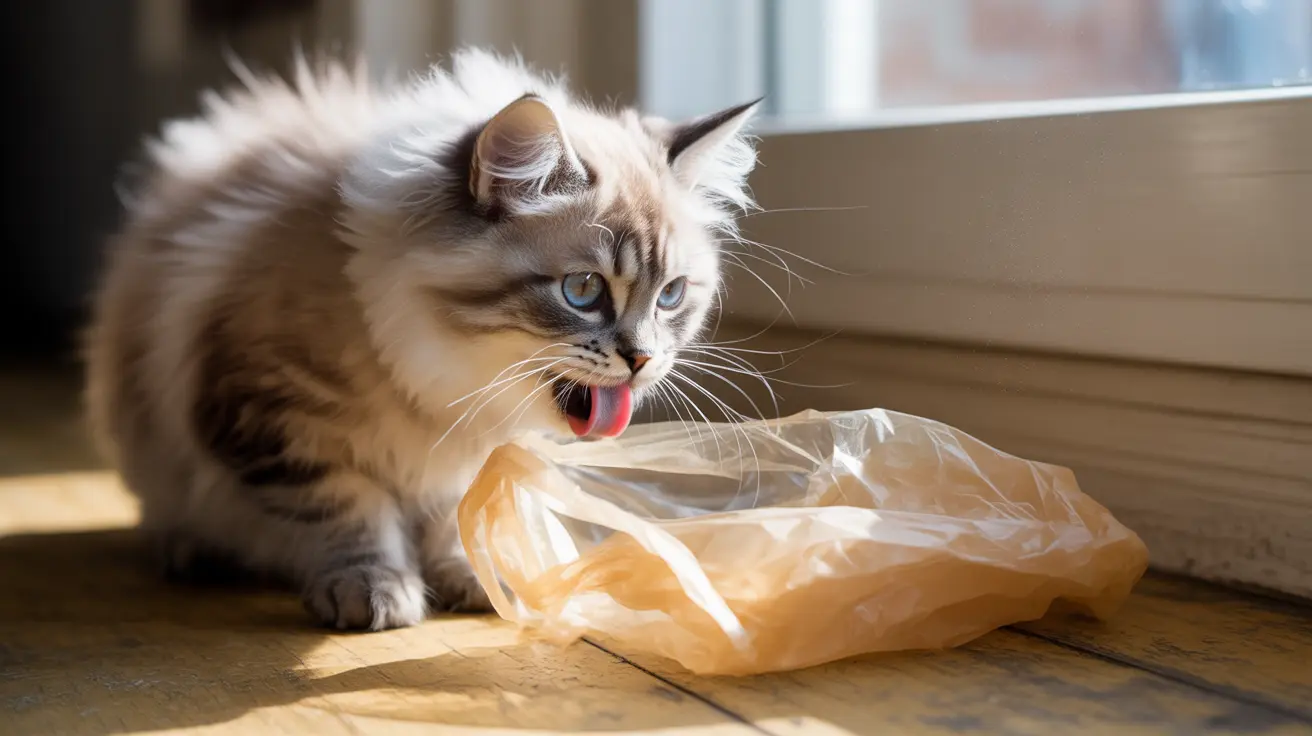If you've ever caught your cat enthusiastically licking plastic bags, packaging, or other synthetic materials, you're not alone. This peculiar behavior is surprisingly common among our feline friends, but it can leave pet owners wondering about its safety and underlying causes. Let's explore why cats are drawn to licking plastic and what this behavior might indicate about your pet's health and well-being.
The Science Behind Plastic-Licking Behavior
Cats' sophisticated sensory systems play a crucial role in their attraction to plastic items. Their sense of smell is up to 40 times more powerful than humans', allowing them to detect subtle scents that we can't perceive. Many plastic items, especially grocery bags, retain microscopic traces of food or processing chemicals that can be irresistible to cats.
Chemical Attractions and Manufacturing Additives
During manufacturing, plastics are often treated with compounds derived from animal products, such as stearates and fish oils. These additives can create appealing scents that trigger your cat's natural curiosity. Additionally, some biodegradable plastics contain cornstarch, which may have a naturally sweet smell that cats find attractive.
Sensory Stimulation and Environmental Factors
The physical properties of plastic items provide multiple forms of sensory engagement for cats. The smooth, cool surface offers an interesting tactile experience, while the crinkly sound of plastic bags might mimic the rustle of prey in nature, activating their hunting instincts.
The Role of Texture and Sound
Many cats are drawn to the unique combination of texture and sound that plastic provides. The cool, smooth surface can be pleasurable to lick, while the crinkling noise provides auditory stimulation that keeps them engaged and interested.
Medical Concerns and Warning Signs
While occasional interest in plastic might be harmless, persistent licking behavior could indicate underlying health issues. This behavior might be associated with pica, a condition where animals compulsively eat non-food items, or signal nutritional deficiencies that need addressing.
When to Seek Veterinary Care
If your cat's plastic-licking behavior becomes obsessive or is accompanied by attempts to eat the plastic, immediate veterinary attention is necessary. Ingesting plastic can lead to serious complications, including intestinal blockages and other life-threatening conditions.
Prevention and Safety Measures
To protect your cat while addressing this behavior:
- Store plastic bags and packaging materials securely out of reach
- Provide appropriate environmental enrichment through toys and activities
- Ensure your cat receives a balanced, nutritionally complete diet
- Consider using plastic alternatives when possible
Frequently Asked Questions
Why does my cat lick plastic bags and packaging so often?
Cats are attracted to plastic due to its texture, sound, and the residual scents from manufacturing processes or previous contents. Some plastics contain animal-derived additives that cats find appealing.
Can licking plastic be a sign of a health problem like pica in cats?
Yes, excessive plastic licking can indicate pica, nutritional deficiencies, or other health issues. If the behavior is frequent or compulsive, consult your veterinarian for a proper evaluation.
What makes plastic items so appealing to cats' senses?
Plastic appeals to multiple feline senses: smell (through manufacturing additives and residual scents), touch (smooth, cool texture), and hearing (crinkly sounds that might mimic prey).
How can I stop my cat from licking or chewing plastic safely?
Remove plastic items from your cat's reach, provide engaging alternatives like interactive toys, ensure proper nutrition, and address any underlying stress or boredom through environmental enrichment.
Is licking plastic dangerous for my cat's health?
Yes, it can be dangerous. Cats may ingest harmful chemicals from plastic surfaces, and there's always a risk of accidental ingestion leading to choking or intestinal blockages.
Conclusion
While cats licking plastic is a common behavior, it's important to monitor the frequency and intensity of this habit. Understanding the underlying causes can help you address any potential health concerns and create a safer environment for your feline companion. If you're concerned about your cat's plastic-licking behavior, don't hesitate to consult with your veterinarian for professional guidance.






